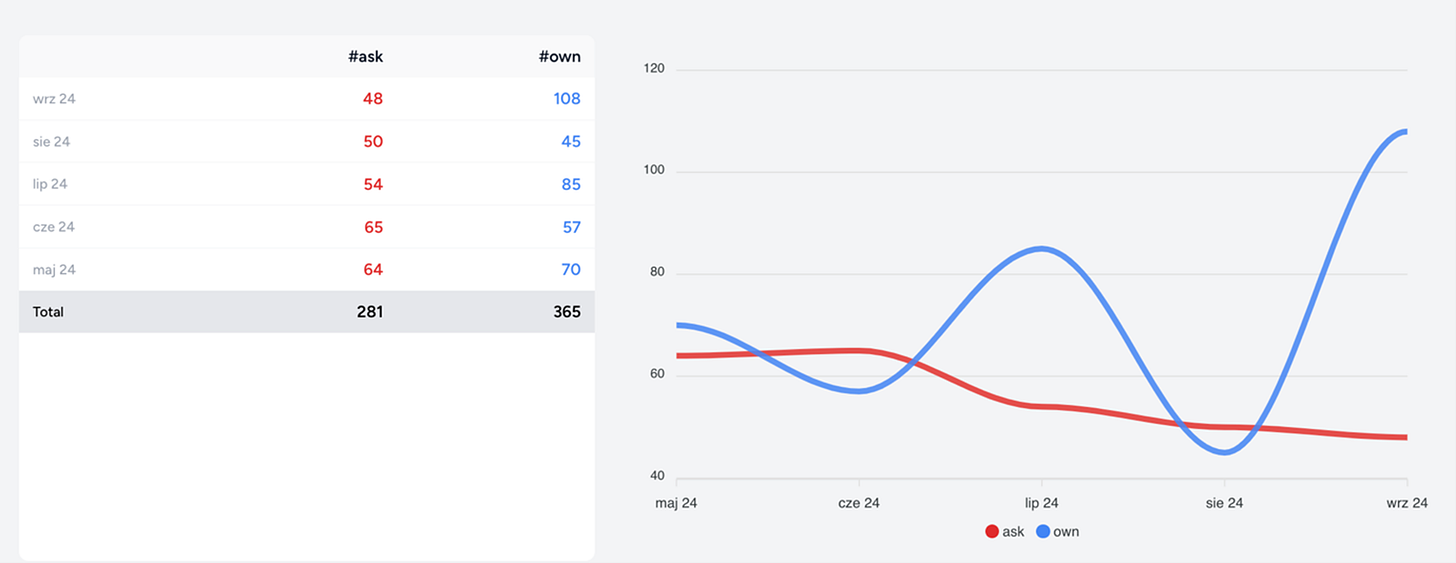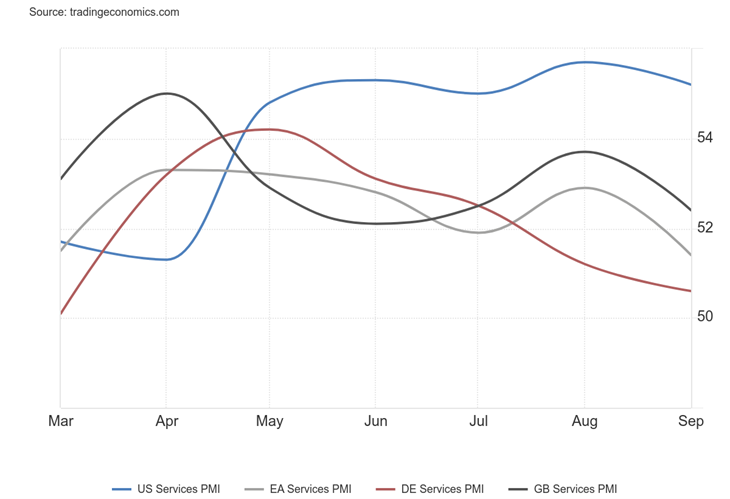The State of Software Development - October 2024
Rise in Jobless IT Specialists, Software as the New Hardware, Impossible Market to Enter
The IT industry is at a crossroads, where innovation is just a fancy word for "brace yourself".
The days when software development was a stable career path seem to be fading. Market anomalies, technological shifts, and global economic trends create a turbulent "red ocean".
In this article, we explore the current challenges and future potential of this industry.
What Can Be Seen on Benches?
Increase in Available (i.e. Jobless) Specialists
In September 2024, the SoDA (Software Development Association) benches recorded a concerning increase in developers "on the bench" — twice as many as in August. Specialists in React, AWS, SQL, JavaScript, Python, and Docker are particularly abundant. A decrease in job requests further complicates the situation, suggesting a break in typical seasonal trends. Until decision-makers return from vacation, the Polish (and broad) IT sector might remain dormant.
Broken Trends
According to data from @trueupio, the global tech sector is preparing for a new recruitment wave. Piotr Nowosielski from justjoin.it suggests that Poland might experience this recovery only by late 2025.
Are we on the cusp of major changes?
Global Macroeconomic Background
The German PMI has dropped to 50.6, indicating near economic stagnation. Exports are declining, and inflation, while easing, remains above pre-pandemic levels. Optimism is hard to come by in such uncertain times.
US inflation fell to 2.4%, with the Federal Reserve responding by lowering the interest rate by 50 basis points. Increasing cost pressures affect companies' hiring decisions regarding programmers.
In the UK, despite the PMI dropping to 52.4, domestic growth continues to drive the market. In the Eurozone, PMI also fell, but employment is rising. Inflation has hit its lowest level in three years, possibly signaling better times for the industry.
Software as the New Hardware
In "Software is the New Hardware," Byrne Hobart highlights that while creating software has never been easier, maintaining a competitive edge has become more challenging. Decreasing development costs bring new challenges as maintenance costs rise due to hardware demands.
Application Lifecycle
The lifecycle of software is getting shorter. New AI applications often don’t last a month before being replaced. As Hobart suggests, software is increasingly resembling hardware: requiring constant updates and integration, posing significant challenges for developers.
Artificial Intelligence: Tomorrow's Game
The rapid advancement of AI offers both exciting possibilities and concerns. New AI tools, like Claude and other advanced language models, are starting to dominate the market, effortlessly tackling tasks once reserved for humans. As we build the robots of the future, we must also consider the ethical implications of this progress.
How to Enter the IT Industry in 2024?
Alternative Career Paths
With AI playing an increasing role, the traditional entry path via tester roles is less effective. Simple tasks, once covered by juniors, are often handled by AI or assisted seniors. However, there are alternative paths for newcomers to consider.
Specialization in Niche Technologies
While AI revolutionizes many technological aspects, there are areas still requiring human expertise. Specializing in niche technologies like blockchain, cybersecurity, or IoT can be a ticket into the market. These fields are rapidly evolving and demand the deep knowledge that AI can't fully replace yet.
Human and Interdisciplinary Skills
IT is no longer just for technicians. Skills such as user experience design (UX), communication, tech law, and IT project management are increasingly in demand. AI’s advancement means a need for interdisciplinary knowledge, making individuals who can bridge different fields vital players in the market.
Lifelong Learning
In this era of rapid technological change, continuous learning and adaptation are key to success. Aspiring IT professionals should constantly expand their skills, learning new programming languages, platforms, and tools. Online educational platforms offer endless learning opportunities tailored to individual needs and pace.
Networking and Open Source Projects
The IT industry uniquely fosters collaboration. Building a network through hackathons, conferences, or open source projects is an excellent way to gain practical skills and connect with industry folks. Open source projects not only allow for practicing new skills but also showcase them to future employers.
Entering the IT field in 2024 demands creativity and flexibility. Newcomers must seek innovative ways to gain experience and skills that will set them apart in a world increasingly dominated by AI.
Adapt or…
We are at a delightful crossroads where AI cleverly takes over the simple stuff, leaving us to master the fine art of "adapt or enjoy unemployment”.
Welcome to the future, where lifelong learning is the new coffee — and we all need a double shot.




